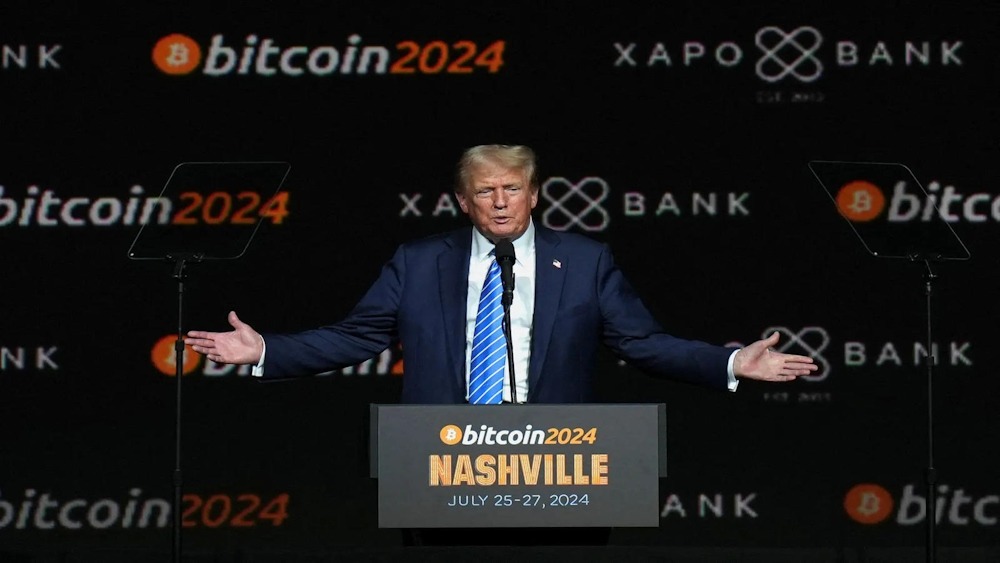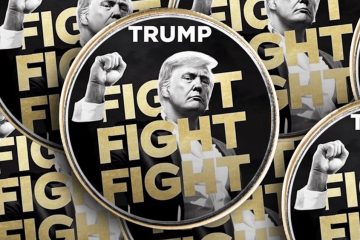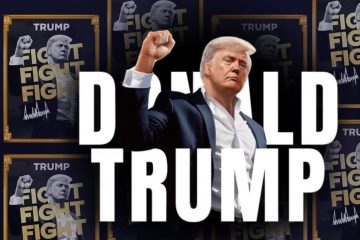Is Trump a true bitcoin evangelist?

Bitcoin has surpassed the market valuation of all but the six largest U.S.-listed companies. Dogecoin, initially conceived as a parody and notable for being the first cryptocurrency to inspire a government department, has ascended to the ranks of the top 200 stocks by market capitalization, surpassing Johnson Controls International in value. The election has ignited a surge that cryptocurrency advocates anticipate will propel prices to unprecedented heights. There is an expectation that President-elect Donald Trump will act on his commitment to remove the current head of the Securities and Exchange Commission, Gary Gensler, relax regulations surrounding cryptocurrency listings, exchanges, finance, and mining, and establish a national reserve of bitcoin.
In theory, more lenient regulations ought to elevate prices by facilitating the attraction of buyers. Cryptocurrencies lack backing from income or a robust economic framework, rendering them susceptible to fluctuations dictated solely by supply dynamics and the prevailing sentiment of investors. An increase in the number of buyers leads to an escalation in price. However, upon closer examination of the argument, it becomes difficult to understand the rationale behind bitcoin’s substantial advantages. The original cryptocurrency stands apart from the majority of its counterparts. In conjunction with the second-largest cryptocurrency, ethereum, there exists minimal regulatory scrutiny. It is classified as a commodity, thereby circumventing direct oversight from the SEC, and it features both futures and, due to ongoing litigation against the SEC, ETFs.
Alternative cryptocurrencies might gain significantly if they were similarly exempted from SEC regulations regarding prospectuses, while ether could see advantages from a more lenient stance on decentralized finance. However, such adjustments would not provide any benefit to bitcoin. Indeed, an increase in demand for alternative cryptocurrencies could, marginally, divert buyers and their capital from bitcoin, which remains the dominant player in the market. “Any regulatory easing that occurs for cryptocurrency tends to be more advantageous for altcoins than for bitcoin, as there is no regulatory framework specifically governing bitcoin,” states Alex Thorn, head of research at Galaxy Digital, a firm specializing in crypto financial services.
What accounts for bitcoin’s surge of one-third since its nadir on election night, resulting in an increase of nearly $500 billion in total market value within a fortnight, while altcoins and ether have failed to keep pace? Three prevalent arguments exist. The initial response can be summarized as a simple acknowledgment of the obvious. The forthcoming president has, following a shift in perspective, openly embraced cryptocurrency and is accompanied by advisers who are similarly enthusiastic about it. Bitcoin stands as the preeminent cryptocurrency. Consequently, one should consider purchasing bitcoin. Since the value is entirely contingent on sentiment—recall, devoid of any fundamentals—this scenario is conceivable, albeit profoundly unsatisfactory; it essentially posits that because “bitcoin” and “crypto” have become synonymous for the majority, any positive development for crypto is deemed beneficial for bitcoin, even when that is not the case.
The second aspect is Trump’s campaign commitment to establish a “strategic national bitcoin stockpile,” beginning with a prohibition on the sale of bitcoin that has been confiscated by law enforcement agencies. The enthusiasm among bitcoin advocates stems from the prospect that this initiative could evolve into a strategic reserve of bitcoin to underpin the dollar, a notion put forth by Senator Cynthia Lummis.
Speculation is rife that various nations may hasten their acquisitions of bitcoin to effectively preempt a potential buying initiative by Trump. Nevertheless, the concept lacks any logical foundation. Strategic currency reserves serve as a safeguard for nations grappling with unstable foreign exchange due to diminished confidence in their currency, or for those seeking to reinvest trade surpluses into international assets. Neither is applicable to the United States. Even if such a scenario were plausible, would Trump genuinely prefer to redirect American resources from fiscal expenditures or tax reductions towards the acquisition of bitcoin?
“Should the Treasury or the Fed announce plans to purchase bitcoin as a means of supporting the dollar, it would have detrimental effects on the currency, akin to declaring an intention to buy lollipops or toothpaste for the same purpose,” Thorn observes. He has a penchant for bitcoin. “The dollar enjoys the robust support of the United States’ full faith and credit.” Nonetheless, forecasting the actions of the new administration remains a challenging endeavor. Undoubtedly, any indication that the government was acquiring bitcoin would certainly drive up its price, however absurd the notion may seem.
The third argument focuses on the inflationary threat, which leads some bitcoin investors to perceive the cryptocurrency as a potential safeguard. The bond market appears to be wagering that Trump’s policies will result in elevated inflation, driven by tariffs and tax reductions. Bitcoin has consistently failed to serve as an effective hedge against inflation, exhibiting a correlation more akin to speculative equities rather than traditional inflation hedges like gold, which has declined since the election, or inflation-linked bonds.
In other terms, Bitcoin embodies the essence of animal spirits rather than a methodical economic examination. It is hardly surprising that it favors Trump.







